INDICATIONS
Sinequan is used for treating depression or anxiety in certain patients. Sinequan is a tricyclic antidepressant.
INSTRUCTIONS
Use Sinequan as directed by your doctor.
- Take Sinequan by mouth with or without food.
- Taking Sinequan at bedtime may help reduce side effects (eg, daytime drowsiness). Discuss this possibility with your doctor.
- If you miss a dose of Sinequan, take it as soon as possible. If it is almost time for your next dose, skip the missed dose and go back to your regular dosing schedule. Do not take 2 doses at once. If you take 1 dose daily at bedtime, do not take the missed dose the next morning.
Ask your health care provider any questions you may have about how to use Sinequan.
STORAGE
Store Sinequan at room temperature, between 68 and 77 degrees F (20 and 25 degrees C). Store away from heat, moisture, and light. Do not store in the bathroom. Keep Sinequan out of the reach of children and away from pets.
MORE INFO:
Active Ingredient: Doxepin HCl.
Do NOT use Sinequan if:
- you are allergic to any ingredient in Sinequan or to other tricyclic antidepressants
- you have certain prostate problems (eg, asymptomatic prostatic hypertrophy), glaucoma, or trouble urinating
- you are taking clonidine, an H1 antagonist (eg, astemizole, terfenadine), or ibutilide, or you have taken a monoamine oxidase inhibitor (MAOI) (eg, furazolidone, phenelzine, isocarboxazid) within the past 14 days.
Contact your doctor or health care provider right away if any of these apply to you.
Some medical conditions may interact with Sinequan. Tell your doctor or pharmacist if you have any medical conditions, especially if any of the following apply to you:
- if you are pregnant, planning to become pregnant, or are breast-feeding
- if you are taking any prescription or nonprescription medicine, herbal preparation, or dietary supplement
- if you have allergies to medicines, foods, or other substances
- if you have a history of heart problems, seizures (eg, epilepsy), overactive thyroid, prostate problems (eg, benign prostatic hypertrophy [BPH]), blood problems (eg, porphyria), other mental or mood problems, suicidal thoughts or attempts, or alcohol abuse.
Some medicines may interact with Sinequan. Tell your health care provider if you are taking any other medicines, especially any of the following:
- Antiarrhythmics (eg, quinidine, propafenone, flecainide), antifungal medicines (eg, fluconazole, terbinafine), carbamazepine, cimetidine, mibefradil, phenothiazines (eg, chlorpromazine, thioridazine), or selective serotonin reuptake inhibitors (SSRIs) (eg, fluoxetine, sertraline) because they may increase the risk of Sinequan’s side effects
- Anticoagulants (eg, warfarin), H1 antagonists (eg, astemizole, terfenadine), ibutilide, sulfonylureas (eg, tolazamide, glipizide), sympathomimetics (eg, phenylephrine, pseudoephedrine), or tramadol because the risk of their side effects may be increased by Sinequan
- Clonidine, guanadrel, guanethidine, or guanfacine because their effectiveness may be decreased by Sinequan
- MAOIs (eg, furazolidone, phenelzine, isocarboxazid) because severe toxic effects may occur.
This may not be a complete list of all interactions that may occur. Ask your health care provider if Sinequan may interact with other medicines that you take. Check with your health care provider before you start, stop, or change the dose of any medicine.
Important safety information:
- Sinequan may cause drowsiness, dizziness, blurred vision. These effects may be worse if you take it with alcohol or certain medicines. Use Sinequan with caution. Do not drive or perform other possible unsafe tasks until you know how you react to it.
- Sinequan will add to the effects of alcohol and other depressants. Ask your pharmacist if you have questions about which medicines are depressants.
- Sinequan may cause dizziness, lightheadedness, or fainting; alcohol, hot weather, exercise, or fever may increase these effects. To prevent them, sit up or stand slowly, especially in the morning. Sit or lie down at the first sign of any of these effects.
- Limit your alcohol consumption while taking Sinequan.
- Children, teenagers, and young adults who take Sinequan may be at increased risk for suicidal thoughts or actions. Watch all patients who take Sinequan closely. Contact the doctor at once if new, worsened, or sudden symptoms such as depressed mood; anxious, restless, or irritable behavior; panic attacks; or any unusual change in mood or behavior occur. Contact the doctor right away if any signs of suicidal thoughts or actions occur.
- Sinequan may cause you to become sunburned more easily. Avoid the sun, sunlamps, or tanning booths until you know how you react to Sinequan. Use a sunscreen or wear protective clothing if you must be outside for more than a short time.
- Tell your doctor or dentist that you take Sinequan before you receive any medical or dental care, emergency care, or surgery.
- After you start taking Sinequan, several weeks may pass before you feel the full benefit.
- Use Sinequan with caution in the elderly; they may be more sensitive to its effects.
- Sinequan should not be used in children younger 12 years; safety and effectiveness in these children have not been confirmed.
- Pregnancy and breast-feeding: If you become pregnant, contact your doctor. You will need to discuss the benefits and risks of using Sinequan while you are pregnant. Sinequan is found in breast milk. Do not breastfeed while taking Sinequan.
Side Effects
All medicines may cause side effects, but many people have no, or minor, side effects.
Check with your doctor if any of these most common side effects persist or become bothersome:
Appetite loss; constipation; diarrhea; dizziness; drowsiness; dry mouth; excess sweating; headache; heartburn; increased appetite; indigestion; nausea; unpleasant taste; urinary retention; vomiting; weakness; weight gain.
Seek medical attention right away if any of these severe side effects occur:
Severe allergic reactions (rash; hives; itching; difficulty breathing; tightness in the chest; swelling of the mouth, face, lips, or tongue); abnormal movements; aggressive or bizarre behavior; agitation; anxiety; blurred vision or other vision changes; chest pain; difficulty speaking and swallowing; disorientation; eye pain; fainting; fast, slow, or irregular heartbeat; hair loss; hallucinations; hostility; irritability; loss of balance; mood swings; nervousness or restlessness; panic attacks; ringing in the ears; seizures; shakiness; sore throat or fever; trouble sleeping; twitching of the face or tongue; unusual bleeding or bruising; yellowing of the skin or eyes.
This is not a complete list of all side effects that may occur. If you have questions about side effects, contact your health care provider.


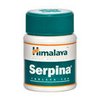



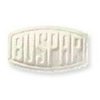
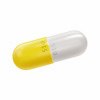
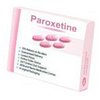
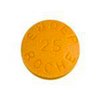
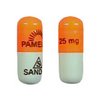
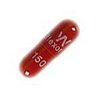
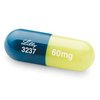
Reviews
There are no reviews yet.